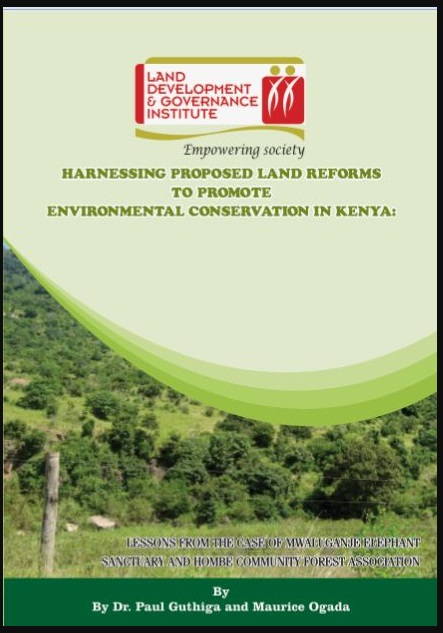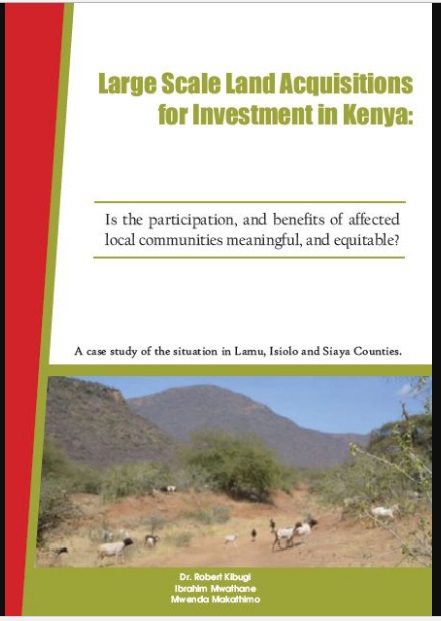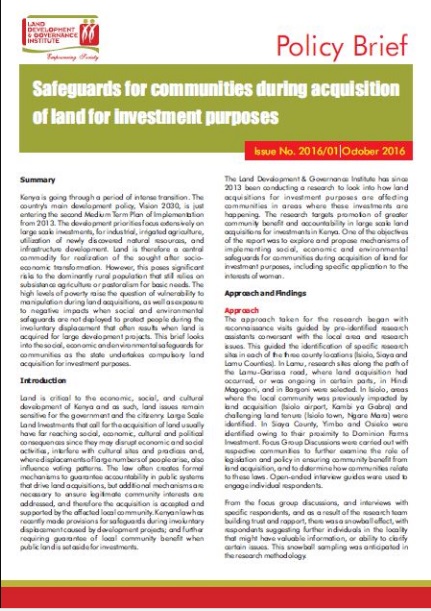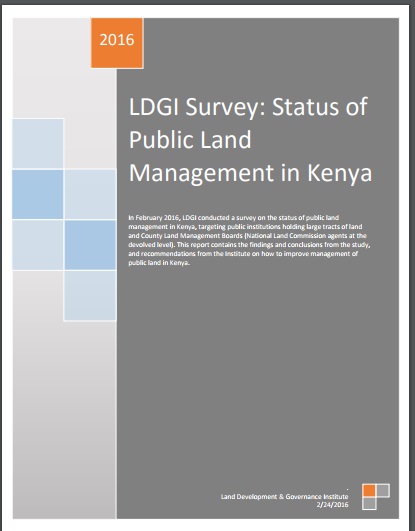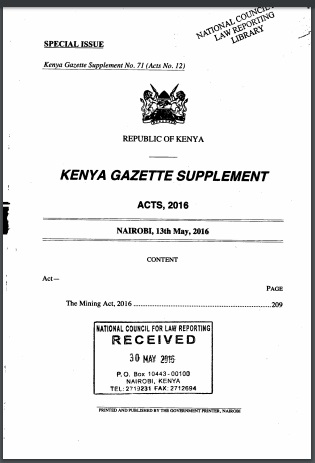Pilot Project to establish a Pro-Poor Land Information Management System (LIMS) for part of Thika Municipality
According to 2001 statistics, 924 million people, almost one third of the world’s population lived in slums. A majority of these people are in the developing countries and they account for 43% of the urban population. Slums are characterized by a dense proliferation of small, makeshift shelters built from diverse materials, degradation of the local ecosystem and by severe social problems.


